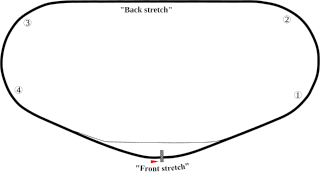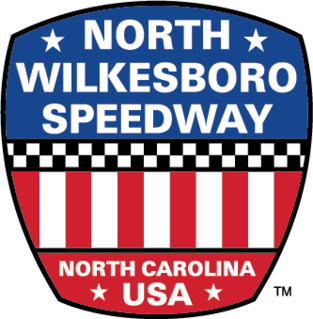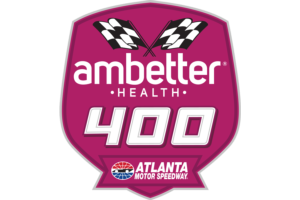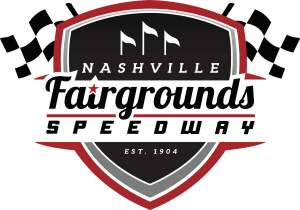
The Daytona 500 is a 500-mile-long (805 km) NASCAR Cup Series motor race held annually at Daytona International Speedway in Daytona Beach, Florida. It is the first of two Cup races held every year at Daytona, the second being the Coke Zero Sugar 400, and one of three held in Florida, with the annual fall showdown Dixie Vodka 400 being held at Homestead south of Miami. From 1988 to 2019, it was one of the four restrictor plate races on the Cup schedule. The inaugural Daytona 500 was held in 1959 coinciding with the opening of the speedway and since 1982, it has been the season-opening race of the Cup series.

David Gene Pearson was an American stock car driver, who raced from 1960 to 1986 in the former NASCAR Grand National and Winston Cup Series, most notably driving the No. 21 Mercury for Wood Brothers Racing. Pearson won the 1960 NASCAR Rookie of the Year award and three Cup Series championships. He never missed a race in the years he was active. NASCAR described his 1974 season as an indication of his "consistent greatness", finishing third in the season points having competed in only 19 of 30 races. Pearson's career paralleled Richard Petty's, the driver who has won the most races in NASCAR history. They accounted for 63 first/second-place finishes, with the edge going to Pearson. Petty had 200 wins in 1,184 starts, while Pearson had 105 wins in 574 starts. Pearson was nicknamed the "Fox" for his calculated approach to racing.

North Wilkesboro Speedway is a short oval racetrack located on U.S. Route 421, about 5 mi (8.0 km) east of the town of North Wilkesboro, North Carolina, or 80 miles north of Charlotte. It measures 0.625 mi (1.006 km) and features a unique uphill backstretch and downhill frontstretch. It has previously held races in NASCAR's top three series, including 93 Winston Cup Series races. The track, a NASCAR original, operated from 1949, NASCAR's inception, until the track's original closure in 1996. The speedway briefly reopened in 2010 and hosted several stock car series races, including the now-defunct ASA Late Model Series, USARacing Pro Cup Series, and PASS super late models, before closing again in the spring of 2011. It was re-opened in August 2022 for grassroots racing and hosted the 2023 NASCAR All-Star Race and a NASCAR Craftsman Truck Series race, with further renovations planned after the events. In 2024 the track will host the championship finale for the CARS Late Model Stock Tour, CARS Pro Late Model Tour, and SMART Modified Tour on the same weekend.

The Ambetter Health 400 is a NASCAR Cup Series stock car race held at Atlanta Motor Speedway in Hampton, Georgia. Daniel Suárez is the defending race winner.

Orange County Speedway is a 3⁄8 mile (0.60 km) asphalt oval in Orange County, North Carolina, near Rougemont. It first opened in 1966 as a 1⁄4 mile (0.40 km) and a 5⁄8 mile (1.0 km) dirt oval, which operated until 1967 and 1973, respectively. The facility was reopened and paved in 1983. With a slogan of "the fastest 3/8-mile race track in America," the oval features 19-degree banking through the turns and 16 degrees on the straightaways, creating three distinct grooves making for very fast turns. The aluminum grandstands stretch from Turn 4 all the way down the front straightaway to Turn 1. The speedway closed in 2003 but reopened on March 11, 2006.

Nashville Fairgrounds Speedway is a motorsport racetrack located at the Nashville Fairgrounds near downtown Nashville, Tennessee. The track is the second-oldest continually operating track in the United States. The track held NASCAR Grand National/Winston Cup races from 1958 to 1984.
The 1983 NASCAR Budweiser Late Model Sportsman Series began on February 19 and ended on October 30. Sam Ard won the championship at season's end.

The Coke Zero Sugar 400 is an annual NASCAR Cup Series stock car race at Daytona International Speedway. First held in 1959, the event consists of 160 laps, 400-mile (640 km), and is the second of two major stock car events held at Daytona on the Cup Series circuit, the other being the Daytona 500. From its inception in 1959 through 2019, it was traditionally held on or around the United States' Independence Day. In 1998, it became the first stock car race at Daytona to be held at night under-the-lights. In 2020, the race was moved to late August.

Stock car racing events in the NASCAR Cup Series events have been held annually at Michigan International Speedway in Brooklyn, Michigan since 1969. Traditionally, the track held two Cup Series races, one in June, around Father's Day weekend and another in August. The August race was not held in 1973 after track owner Roger Penske replaced the race with a Champ Car event. In 2020, both races were held over a single weekend in August due to the COVID-19 pandemic. In 2021, the June race was dropped from the schedule as part of a realignment, with its place on the schedule being given to Texas Motor Speedway to host the All-Star Race.
The 1979 NASCAR Winston Cup Series was the 31st season of professional stock car racing in the United States and the 8th modern-era Cup series. It began on Sunday, January 14, and ended on Sunday, November 18. Richard Petty won his seventh and final Winston Cup championship, winning by 11 points over Darrell Waltrip. Dale Earnhardt was crowned NASCAR Rookie of the Year.
The 1971 NASCAR Winston Cup Series season began on January 10 and ended on November 20. Richard Petty was the champion for this Winston Cup season. After 20 years of being named the NASCAR Grand National Series, R. J. Reynolds first became the primary sponsor in a decade where the growing anti-tobacco movement banned its advertisement on television and motorsports was the ideal place to place their advertisements. Through NASCAR, Winston merchandise was unveiled to live viewers of the races. This kind of merchandise would also be given out at stores that sold cigarettes in subsequent years. Race car drivers were encouraged to smoke cigarettes until the mid-2000s brought in strict drug testing policies in addition to a smoking cessation program by Nicorette, a GlaxoSmithKline brand.

The 1979 Southern 500, the 30th running of the event, was a NASCAR Winston Cup Series race that took place on September 3, 1979, at Darlington Raceway in Darlington, South Carolina.

The 1976 Dixie 500 was a NASCAR Winston Cup Series race that took place on November 7, 1976, at Atlanta International Raceway in Hampton, Georgia, United States.

The 1980 NASCAR Winston Cup Series was the 32nd season of professional stock car racing in the United States and the 9th modern-era NASCAR Cup season. It was the final year with the Gen 2 car. The season began on Sunday, January 13 and ended on Sunday, November 15. Dale Earnhardt won his first Winston Cup championship, winning by 19 points over Cale Yarborough. Jody Ridley was crowned NASCAR Rookie of the Year.
This article documents historical records, statistics, and race recaps of the Daytona 500, held annually at Daytona International Speedway in Daytona Beach, Florida.
The 1967 Greenville 200 was a NASCAR Grand National Series event that was held on March 25, 1967, at Greenville-Pickens Speedway in Greenville, South Carolina.

The 1980 Talladega 500 was a NASCAR Winston Cup Series race that took place on August 3, 1980, at Alabama International Motor Speedway in Talladega, Alabama, USA.

The 1973 Dixie 500 was a NASCAR Winston Cup Series race that took place on July 22, 1973, at Atlanta International Raceway in Hampton, Georgia.

The Alsco Uniforms 500 was a NASCAR Cup Series race that is held annually at Charlotte Motor Speedway in Concord, North Carolina, United States, with the other one being the Coca-Cola 600 on Memorial Day weekend, the 600-mile (970 km) race. Beginning in 2018, was replaced by a road course race rather than the full oval, called Bank of America Roval 400.

Ona Speedway is an Auto racing oval short track venue located in Ona, West Virginia. Ona Speedway is known for being the only paved oval race track in West Virginia and hosting NASCAR Cup Series races in 1963, 1964, 1970, & 1971. It is located adjacent to the Ona Airpark between the cities of Huntington and Charleston.














